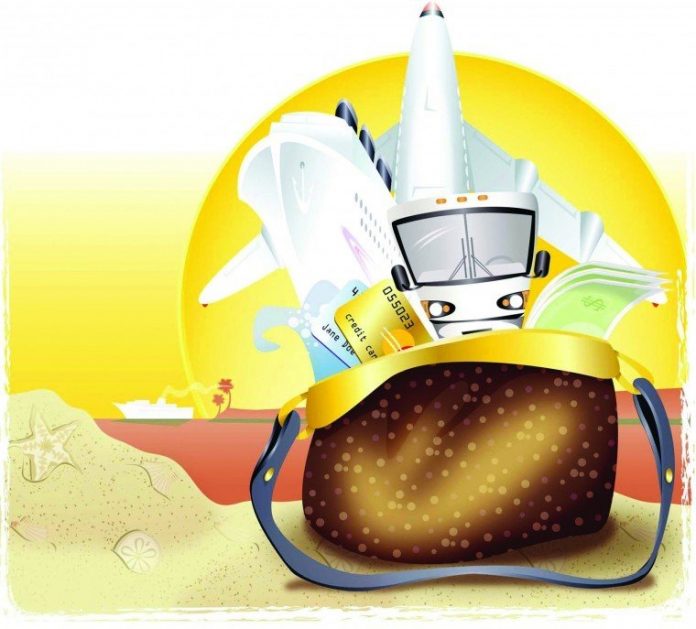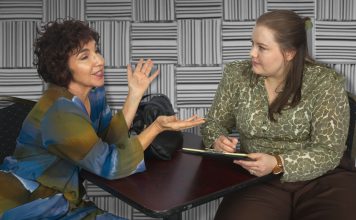THE AIRPORT
• Stay alert and watch your bags and computer carefully at all times. Don’t let anyone but uniformed airline personnel handle or watch your bags.
• Always carry proper identification such as a state issued driver’s license or passport.
• Do not bring anything on board for another person unknown to you or not traveling with you, however innocent or small the package or item may appear.
• Watch out for staged mishaps, like someone bumping into you or spilling a drink. Often it’s a ploy to divert your attention from your valuables.
• Carry your purse close to your body and keep your wallet in an inside front pocket. Better yet, use a money pouch under your clothes.
• Keep a separate record of the contents of checked luggage in case your luggage is lost or tampered with. And keep anything of value in a carry-on that stays with you.
• To avoid problems when passing through customs or security checkpoints, keep medicines in their original, labeled containers. Bring copies of your prescriptions and the generic names for the drugs. If a medication is unusual or contains narcotics, carry a letter from your doctor attesting to your need to take the drug. If you have any doubt about the legality of carrying a certain drug into a country, consult the embassy or consulate of that country before you travel.
YOUR DESTINATION
• Don’t answer the door in a hotel or motel room without first verifying the identity of the person at the door. If the person claims to be an employee, call the front desk.
• When returning to your hotel or motel late in the evening, use the main entrance of the hotel. Be observant before entering parking lots.
• Lock the door whenever you are in your room.
• Don’t display guest room keys in public or leave them on restaurant tables, at the swimming pool, or other places where they can be easily stolen.
• Do not draw attention to yourself by displaying cash or expensive jewelry.
• Check to see that any sliding glass doors or windows and any connecting room doors are locked. Keep all hotel doors and windows locked.
• Discretely carry a map and be familiar with the area you are visiting. If driving, keep maps and rental agreement concealed, not lying on the seat or the dashboard.
• Don’t leave purses or pocketbooks on the back of a chair when dining out; keep them in your lap.
• Don’t announce room numbers in public. Insist that hotel personnel write down your room number at check-in rather than stating out loud the number of your room.
• Before taking a cab, ask the staff about directions and estimated costs to familiarize yourself with the area.
• Only take taxis clearly identified with official markings. Compare the face of the driver with the one on the posted license.
• Keep car doors locked while you are driving.
TRAVELING ABROAD
• Check country-specific information and travel warnings and alerts at the State Department’s website (www.state.gov).
• Always try to travel light, so you can move quickly and keep a free hand.
• Carry the minimum number of valuables, and plan places to conceal them. When you have to carry your cash, passport and credit cards, you may wish to put them in various places rather than all in one wallet or pouch.
• Bring travelers checks and one or two major credit cards instead of cash.
• Use covered luggage tags to avoid casual observation of your identity or nationality.
• Remove unnecessary credit cards, irreplaceable family photos, your library card and similar items from your wallet.
• Make two photocopies of your passport identification page, airline tickets, driver’s license and the credit cards that you plan to bring with you. Leave one photocopy of this data with family or friends at home; pack the other in a place separate from where you carry the originals. Pack an extra set of passport photos to make replacement easier if your passport is stolen.
• Leave a copy of the serial numbers of your travelers’ checks with a friend or relative at home. Carry your copy with you in a separate place and, as you cash the checks, cross them off the list.
• Try to stay in larger hotels that have more elaborate security. Consider booking a room from the second to seventh floors – high enough to deter easy entry from outside, but low enough for fire equipment to reach.
• Avoid scam artists by being wary of strangers who approach you and offer to be your guide or sell you something at bargain prices.
• Do not flash large amounts of money when paying a bill. Make sure your credit card is returned to you.
• Ask your credit card company how to report the loss of your card from abroad, as 1-800 numbers generally do not work from other countries.
• You can register your travel with the State Department so you can be contacted in case of emergency at travelregistration.state.gov
• Try to seem purposeful when you move about. Even if you are lost, act as if you know where you are going. Try to ask for directions only from individuals in authority.
• Deal only with authorized agents when you exchange money, buy airline tickets or purchase souvenirs.
• If your possessions are lost or stolen, report the loss immediately to the local police. Keep a copy of the police report for insurance claims and as an explanation of your plight.
PUBLIC TRANSPORTATION
• Well-organized, systematic robbery of passengers on trains along popular tourists routes is a problem in many countries.
• If you see your way being blocked by a stranger and another person is very close to you from behind, move away.
• Do not accept food or drink from strangers.
• Where possible, lock your compartment. If it cannot be locked securely, take turns sleeping in shifts with your traveling companions. If that is not possible, stay awake. If you must sleep unprotected, tie down your luggage and secure your valuables to the extent possible.
• Do not be afraid to alert authorities if you feel threatened in any way. Extra police are often assigned to ride trains on routes where crime is a serious problem.
RENTING A CAR
• Choose a type of car that is commonly available locally. Avoid cars that are marked as rentals. If available, choose a car with universal door locks and power windows.
• Rent a car with air conditioning to allow you to drive with windows closed.
• Avoid driving at night.
• Never pick up hitchhikers.
• Carjackers and thieves operate at gas stations, parking lots, in city traffic and along the highway. Be suspicious of anyone who hails you or tries to get your attention when you are in or near your car.
• Criminals sometimes pose as good Samaritans, offering help for tires that they claim are flat or that they have made flat. Or they may flag down a motorist, ask for assistance and then steal the rescuer’s luggage or car. They often work in groups, one person carrying on the pretense while the others rob you.
• Some criminals try to drive victims off the road, or cause an “accident.”
• In some urban areas, thieves simply smash car windows at traffic lights, grab your valuables or your car and get away.
Sources: Bureau of Consular Affairs, U.S. Department of State; National Crime Prevention Council; South Florida law enforcement agencies














